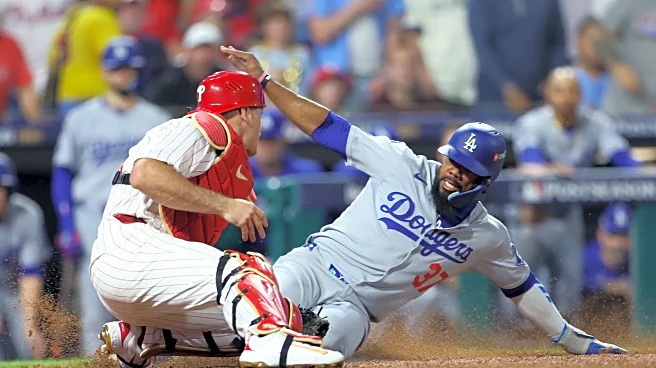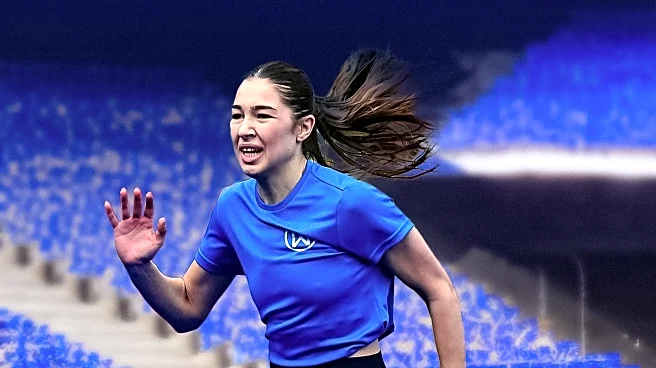After two games of Divisional Series play, three teams hold a commanding 2-0 lead: the Blue Jays, Brewers, and Dodgers. The comparisons between these clubs reveal entirely different paths, as the Blue Jays and Brewers have
more thoroughly thumped the Yankees and Cubs, respectively, while the Dodgers have gotten on the winning end of some closely contested matches, overcoming all kinds of adversities. Out of the many aspects to highlight as Los Angeles was able to take this second game for a commanding series lead over the Phillies, you have this team’s innate ability to pounce when the opportunity arises—the so-called big inning, which made the difference in both wins.
From a very rudimentary point of view, anyone who was able to watch the first two games in their entirety would not dispute the argument that the Phillies’ starting pitcher has dominated the Dodgers’ lineup. Cristopher Sánchez and Jesús Luzardo did all that could be expected out of them, and then some, putting up nothing but zeroes through five innings. This was particularly alarming as contrary to the Dodgers, the Phillies’ bullpen didn’t necessarily enter this series as an accident waiting to happen. Although it’s had more than its fair share of bumps along the way, a primary issue for the Phillies’ relievers has been the fact that they’re being put in difficult situations.
Momentum is a tough thing to quantify, but it doesn’t take a genius to figure out that the Dodgers have seized it in both games. After scoring all five of their runs in Game 1 across a couple of innings, the Dodgers were even more concise, stacking four runs in one frame in Game 2. Los Angeles even went about it in a very similar way, getting to the opposing starter late in their performance and then pouncing on a bullpen with its back against the wall, trying to limit the damage.
Jesús Luzardo was absolutely cruising through six, and if you remove yourself from the stakes of a scoreless tie, down 1-0 in a five-game series, it’s incredibly feasible to argue he should’ve stayed out there with 82 pitches, particularly when you account for how dominant Luzardo usually is the third time through the order. However, unlike Roberts, who is basically forced into riding his starters over a lack of trust in the bullpen, the Phillies have options.
In the end, and here is where the whole argument of opportunity meeting readiness comes into play, the Dodgers were able to capitalize on that situation, even if, in theory, the Phillies’ bullpen did a remarkable job to potentially get out of the frame. When Orion Kerkering came into the game, the Dodgers had a ridiculous chance to score one, if not multiple runs, with runners at second and third and no outs. Very nearly, they scored none. It was a Teoscar Hernández good baserunning play, combined with a less-than-ideal throw from Trea Turner, that made the difference in the whole inning.
For as much as we can praise Teoscar Hernández’s ability to get around the tag, he should’ve been out with a better throw from Trea Turner, and he still should’ve tried to score, this being a calculated risk. Obviously, it’s not an easy play, but if you flip the script, this game was filled with noticeable defensive efforts from the Dodgers at different levels that helped secure the victory. Even beyond the crucial wheel play to get Nick Castellanos out at third in the ninth, Freddie Freeman put on a defensive clinic in that frame. There was the Max Kepler forceout at second, in which it’s questionable if they get him at first with the way Alex Vesia came off the mound and where that ball took Freeman. You had the Freeman scoop at first after a low throw for the final out. All of these required a decent level of difficulty, and making every single one of them was the difference in helping the Dodgers win. Turner couldn’t make it when it was his turn for the Phillies.
To further highlight the impact of that moment, in a world where the Dodgers don’t do anything different, but Philly completes that play as it had to, the Phillies realistically could’ve gotten out of the inning because the Will Smith two-run knock didn’t come until there were two outs in the inning. No one is a fan of this type of revisionist history, and who knows what actually happens if Hernández is called out. Still, the truth of the matter is that there is very little reason to have expected a better outcome from Pages against Kerkering in what would’ve been a situation of much greater pressure than the one he popped out in.
Circling back to what did happen, while the run scored by Hernández was massive, the lack of an out there was even bigger, as it allowed for Will Smith’s turn to come in the ninth hole (Smith had already entered the game as a pinch-hitter earlier on). Smith prevailed, and then Ohtani, the hitter, had his first moment in the series, getting to Matt Strahm to make it 4-0. As it turns out, Los Angeles needed every bit of those four runs to secure a Game 2 win.
A part of being a great team is getting a break and taking advantage of it. The Phillies caught a break when Dave Roberts inexplicably went to Blake Treinen over Roki Sasaki in the ninth. Maybe they caught one when Roberts gave Sheehan one more inning, which saw him pitch crucial at-bats against Kyle Schwarber and Bryce Harper over a lefty like Alex Vesia. One could even say the little squibbler from Kiké Hernández was a mini-break, given he is the postseason star we’ve come to know and love. Other than pounding on Treinen, they couldn’t quite capitalize, while the Dodgers made the most out of their sole opportunity.












